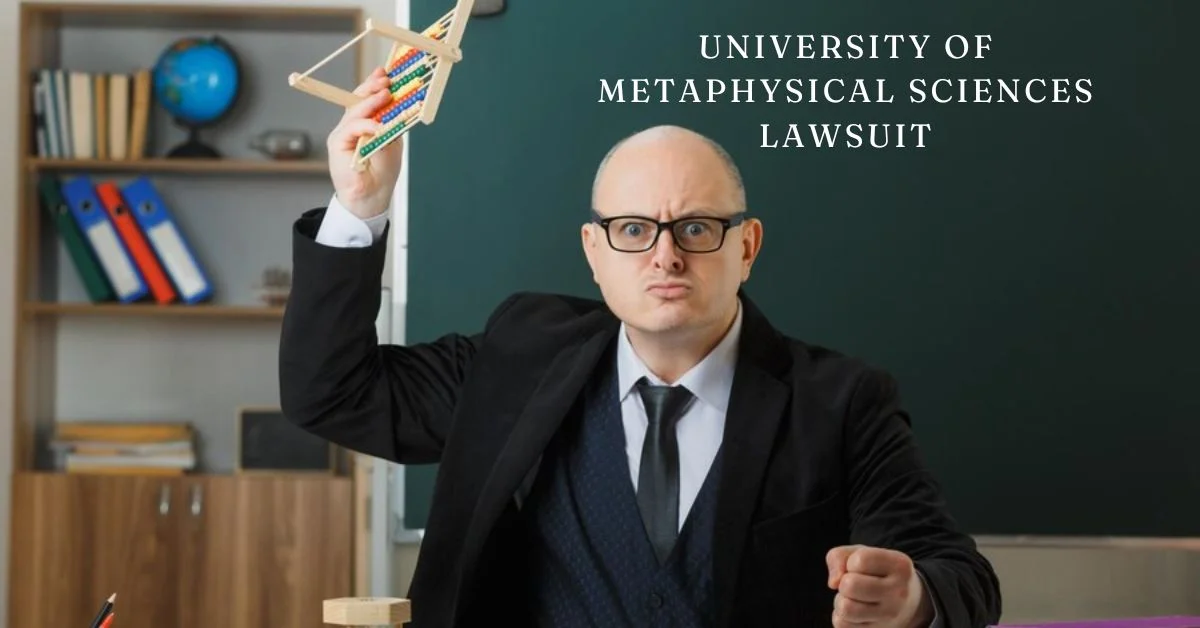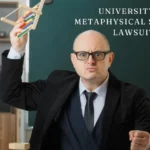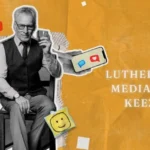Introduction to university of metaphysical sciences lawsuit
The University of Metaphysical Sciences Lawsuit has recently found itself at the center of a legal storm that’s capturing public attention. With whispers of controversy and accusations swirling, the implications of this lawsuit extend far beyond just the institution itself. Students, staff, and even future enrollees are watching closely to see how this battle unfolds. The claims range from financial misconduct to ethical breaches, igniting conversations about accountability in alternative education settings. As we delve deeper into the details of this unfolding saga, it’s essential to understand not only what led to this moment but also what it could mean for those involved and the broader landscape of holistic education.
ALSO READ: White Oak Global Advisors Lawsuit: Key Insights and Impacts
The Allegations Against university of metaphysical sciences lawsuit
The allegations against the University of Metaphysical Sciences are serious and multifaceted. Critics claim that the institution misled students about accreditation status, leaving many uncertain about their qualifications in a competitive job market.
Another significant concern revolves around financial practices. Plaintiffs allege that tuition fees were not transparently communicated, leading to unexpected costs for students enrolled in various programs.
Additionally, there are questions regarding the quality of education provided. Some former students argue that course content was outdated or lacking depth, raising doubts about its relevance and effectiveness.
These accusations have sparked intense debate within alternative education circles. The impact on reputation could be profound if these claims prove valid. As this legal battle unfolds, scrutiny will remain high on how the university responds to such impactful allegations.
Lawsuit Details and Key Players Involved
The university of metaphysical sciences lawsuit has brought several key players into the spotlight. At the center is the institution itself, known for its unconventional approach to education.
On one side, we have the plaintiffs—former students who allege that their experiences did not match advertised promises. They claim a lack of adequate resources and support impacted their learning journey.
Legal representatives from both sides are also crucial in this unfolding drama. The plaintiffs’ attorneys aim to shed light on educational standards, while the university’s legal team defends against these accusations.
Additionally, some faculty members find themselves caught between loyalty to their institution and concern for student welfare. Their testimonies may play a significant role as this case progresses through courtrooms.
As discussions unfold, each player’s stance will shape public perception and potentially influence future regulations surrounding alternative education.
Impact on Students and Staff
The ongoing university of metaphysical sciences lawsuit has cast a shadow over the institution. Students and staff alike find themselves caught in an unsettling limbo.
For students, uncertainty looms large. Many worry about the value of their education amidst these allegations. The fear of disrupted programs can lead to anxiety, affecting academic performance and future plans.
Staff members are also feeling the heat. Job security is a pressing concern as the legal battle unfolds. Faculty may face increased workloads or even layoffs if funding dwindles due to negative publicity surrounding the case.
This turmoil hinders collaboration and innovation within classrooms too. A once-thriving community is now grappling with doubt, leaving everyone questioning what lies ahead for their personal and professional journeys at this institution.
Responses from university of metaphysical sciences lawsuit and the Plaintiff
The University of Metaphysical Sciences has issued a public statement addressing the lawsuit. They emphasize their commitment to ethical practices and express confidence in their legal position. The university believes that the allegations are unfounded, asserting that they adhere strictly to educational standards.
On the other side, the plaintiff remains vocal about their concerns. They argue that transparency is crucial in higher education, especially within alternative institutions like this one. Their representatives have called for accountability and demand a thorough investigation into the university’s policies.
Both parties appear ready to engage in dialogue as they navigate this complex situation. This reflects a growing trend among universities facing scrutiny from students and regulatory bodies alike. The outcome will likely influence how similar institutions manage relationships with both current and prospective students moving forward.
Possible Outcomes and Resolution
The potential outcomes of the university of metaphysical sciences lawsuit could vary widely. One possibility is a settlement, which may allow both parties to avoid lengthy court proceedings. This would provide a quicker resolution and potentially restore some stability for students and staff.
If the case proceeds to trial, the verdict will depend heavily on evidence presented by both sides. A ruling in favor of the plaintiff might lead to significant changes within the institution or financial compensation for affected parties.
On the other hand, if the university prevails, it may reinforce its policies and practices while leaving plaintiffs with limited recourse.
Additionally, this legal battle could set precedents that influence other alternative education institutions across similar challenges. Stakeholders are keenly watching how this situation unfolds as it has far-reaching implications for educational standards and student rights.
Lessons Learned and Future Implications for Alternative Education Institutions
The university of metaphysical sciences lawsuit serves as a crucial case study for alternative education institutions. It sheds light on the importance of transparency and accountability in non-traditional settings.
Many programs may not follow conventional educational standards. This can lead to misunderstandings or misrepresentations about what a degree truly offers. Institutions must prioritize clarity in their curricula and outcomes.
Furthermore, this legal battle emphasizes the need for proper accreditation processes. Without recognized credentials, graduates may face challenges in employment opportunities.
Alternative education providers should also focus on student support services. Ensuring students have access to resources can create a more robust learning environment.
Proactive communication strategies could mitigate potential disputes before they escalate into lawsuits, benefiting both students and institutions alike.
Conclusion
The university of metaphysical sciences lawsuit has opened a significant dialogue about the future of alternative education institutions. As legal battles unfold, stakeholders must pay attention to the implications for students, faculty, and the broader educational landscape.
This case serves as a reminder that all educational entities need to uphold certain standards. It also highlights the importance of transparency in their operations. Students and staff alike deserve clarity regarding their rights and responsibilities.
With ongoing developments in this lawsuit, it will be crucial for both sides to navigate these waters carefully. Their actions may set precedents that affect not only their institution but potentially others within similar fields.
As we watch this situation progress, one thing is clear: accountability matters in education. This legal battle could inspire changes that lead to more robust frameworks within which alternative institutions can operate safely and effectively moving forward.
ALSO READ: Crocs Class Action Lawsuit: Complaints and Legal Claims
FAQs
What is the “University of Metaphysical Sciences lawsuit”?
The University of Metaphysical Sciences lawsuit involves allegations related to financial misconduct, misleading students about accreditation, and the quality of education. The case is gaining attention as former students raise concerns about the institution’s practices.
What allegations are being made against the University of Metaphysical Sciences?
Allegations include misleading students about their accreditation status, hidden tuition fees, outdated course content, and lack of adequate educational resources. These concerns have led to a legal battle.
How could the University of Metaphysical Sciences lawsuit impact students and staff?
The lawsuit has created uncertainty for students regarding the value of their education and the continuity of their programs. Staff members are also facing job insecurity and potential layoffs due to the financial and reputational risks posed by the case.
What are the possible outcomes of the University of Metaphysical Sciences lawsuit?
Possible outcomes include a settlement or a trial verdict. A settlement could bring quick resolution, while a trial could result in financial compensation or changes to the university’s policies, impacting its future operations.
What lessons can alternative education institutions learn from the University of Metaphysical Sciences lawsuit?
This lawsuit highlights the need for transparency, proper accreditation, and robust student support systems in alternative education. Institutions should ensure clear communication and uphold ethical practices to avoid legal disputes and protect their reputation.











